What if the key to finding love wasn’t just a swipe away but a fully immersive experience with an AI companion who knows you better than you know yourself? From the early days of algorithm-driven dating apps like Tinder to the rise of emotionally intelligent AI partners, the way we connect, love, and build relationships is changing faster than ever. But is this transformation a leap toward a brighter future or a step into a dystopian reality where human connections are replaced by machines?
This isn’t just science fiction. Researchers like Yann LeCun, a pioneer in artificial intelligence, and Sherry Turkle, a psychologist who studies human-technology interactions, have been exploring the implications of AI on human relationships for years. Even Fei-Fei Li, a leading voice in AI ethics, has warned about the emotional and societal risks of relying too heavily on machines for companionship. As we stand on the brink of a new era, it’s time to ask: What does the future of love look like in the age of AI?
This article dives into the evolution of dating technology, from its humble beginnings to the potential of AI-driven companions. We’ll explore the benefits—like personalized matchmaking and emotional support—and the challenges, including ethical dilemmas and the risk of emotional detachment. By examining the intersection of technology and human relationships, we’ll uncover how AI could redefine love, intimacy, and companionship in the 21st century.
1. The Evolution of Dating Technology: From Matchmaking Algorithms to AI Companions
1.1 The Rise of Algorithm-Driven Dating Apps
Dating apps like eHarmony and OkCupid were among the first to use algorithms to match people based on compatibility. These platforms analyzed user data—like interests, values, and personality traits—to suggest potential partners. It was a game-changer. Suddenly, finding love wasn’t just about chance encounters or blind dates; it was about data-driven precision.
Then came Tinder, which introduced the swipe culture. With a simple flick of the finger, users could browse through profiles, making snap judgments based on photos and short bios. It was fast, fun, and addictive. But it also turned dating into a commodity, where people were reduced to profiles and swipes. The downside? Superficiality. Many users complained about the lack of emotional depth and meaningful connections.
1.2 The Emergence of AI in Dating
Enter AI. Today, dating platforms are leveraging artificial intelligence to go beyond swipes and algorithms. AI-powered chatbots, like those used by Match.com, can now engage users in conversations, offering advice and even setting up dates. These systems analyze tone, facial expressions, and body language to understand emotions better. It’s not just about matching people anymore; it’s about creating meaningful interactions.
But the real game-changer is the shift from matchmaking to companionship. Companies like Replika are developing AI companions that can adapt to your personality, learn from your conversations, and even provide emotional support. These AI partners aren’t just tools; they’re becoming friends, confidants, and even romantic partners for some.
1.3 The Future: Fully Immersive AI Companions
What’s next? Imagine a world where your AI companion isn’t just a chatbot but a fully immersive experience. Virtual reality (VR) and augmented reality (AR) are already making waves in the dating world. Platforms like VRChat allow users to go on virtual dates, complete with avatars and interactive environments. But the future could go even further.
AI companions with emotional intelligence and adaptive personalities could become the norm. These systems would learn from your behavior, anticipate your needs, and evolve with you over time. The line between human and AI relationships might blur, raising questions about what it means to truly connect with someone. Could AI replace human relationships entirely? It’s a possibility we can’t ignore.
2. The Benefits of AI in Dating and Relationships
2.1 Personalized Matchmaking
Imagine a dating app that doesn’t just rely on your profile picture or a witty bio but digs deep into your personality, preferences, and even your quirks. That’s the power of AI-driven matchmaking. Platforms like eHarmony and OkCupid have been using algorithms for years to pair people based on compatibility. But AI takes this to a whole new level. By analyzing vast datasets—ranging from your hobbies to your communication style—AI can predict who you’re most likely to click with. It’s like having a personal Cupid who knows you better than you know yourself.
Take Hinge, for example. Their “Most Compatible” feature uses AI to suggest matches based on your past interactions. The result? Less time wasted on dead-end dates and more meaningful connections. According to a Pew Research study, 12% of Americans have married or been in a committed relationship with someone they met online. AI is making these success stories more common by cutting through the noise and delivering matches that truly matter.
2.2 Emotional Support and Companionship
Loneliness is a growing epidemic, with Cigna reporting that 61% of Americans feel lonely. Enter AI companions. These aren’t just chatbots that ask how your day was; they’re sophisticated systems designed to provide emotional support. Apps like Replika offer AI companions that learn from your conversations, adapt to your emotional needs, and even help you process difficult feelings. For many, these AI friends are a lifeline in a world that often feels isolating.
But it’s not just about companionship. AI can also play a role in mental health. For instance, Woebot, an AI-powered mental health chatbot, uses cognitive behavioral therapy techniques to help users manage anxiety and depression. Imagine combining this with a dating app. You could have an AI that not only helps you find love but also supports your emotional well-being along the way.
2.3 Breaking Down Barriers
Love knows no borders, but language and cultural differences can make dating across countries challenging. AI is breaking down these barriers. Translation tools like Google Translate are already helping people communicate across languages, but AI is taking it further. Imagine a dating app that not only translates your messages but also adapts them to reflect cultural nuances. This could make international dating smoother and more inclusive.
AI is also making dating more accessible for marginalized communities. For example, Taimi, a dating app for the LGBTQ+ community, uses AI to create a safer and more inclusive environment. By filtering out hate speech and promoting positive interactions, AI is helping people connect without fear of discrimination. The democratization of love is no longer a dream—it’s becoming a reality.
3. The Challenges and Ethical Dilemmas of AI in Relationships
3.1 Emotional Detachment and Dependency
While AI can provide companionship, there’s a fine line between support and dependency. What happens when people start preferring AI companions over human relationships? A study by Nature found that some users of AI companions reported feeling emotionally attached to their virtual friends. While this can be comforting, it also raises concerns about emotional detachment from real-world relationships.
Moreover, AI companions are programmed to be non-judgmental and always available. This can create unrealistic expectations for human partners, who are, well, human. They have bad days, disagreements, and flaws. If we start expecting the same level of perfection from our human relationships, we might end up disappointed and disconnected.
3.2 Privacy and Data Security
Dating apps collect a ton of personal data—your location, preferences, and even your deepest secrets. While this data is used to improve matchmaking, it also poses significant privacy risks. In 2018, BBC News reported that dating apps like Grindr were sharing user data with third-party companies. This raises serious ethical questions: Who owns your data, and how is it being used?
AI companions add another layer of complexity. These systems learn from your interactions, which means they’re constantly collecting sensitive information. If this data falls into the wrong hands, it could be used for surveillance or manipulation. Ensuring robust data security measures is crucial, but it’s also a challenge that requires ongoing attention.
3.3 Ethical AI Development
AI is only as good as the data it’s trained on, and that data can be biased. For example, a ProPublica investigation found that AI algorithms used in criminal justice systems were biased against Black defendants. If similar biases exist in dating algorithms, they could perpetuate stereotypes and discrimination.
To address this, developers need to prioritize ethical AI development. This means creating algorithms that are transparent, fair, and inclusive. It also means involving diverse teams in the development process to ensure that different perspectives are considered. After all, love is universal, and AI should reflect that.
4. The Impact of AI on Dating Culture and Emotional Fulfillment
4.1 Changing Norms and Expectations
AI is reshaping how we think about love and relationships. Gone are the days when dating was about chance encounters or introductions through friends. Now, algorithms decide who we meet, and AI-driven platforms like Tinder and Bumble dominate the scene. But what does this mean for our expectations? Are we becoming too reliant on technology to find "the one"?
One major shift is the rise of "perfect match" culture. AI promises to find someone who ticks every box—similar interests, values, and even personality traits. But this can create unrealistic expectations. After all, human relationships thrive on imperfections and growth. Can AI truly replicate the messy, beautiful complexity of love?
Another trend is the blurring line between human and AI relationships. With emotionally intelligent AI companions like Replika, people are forming deep connections with virtual partners. These AI companions can listen, empathize, and even adapt to your emotional needs. But is this a step forward or a step away from genuine human connection?
4.2 Emotional Fulfillment in the Age of AI
Can AI provide the same emotional depth as a human partner? The answer isn't straightforward. AI excels at mimicking emotions and offering support, but it lacks the lived experiences and genuine empathy that humans bring to relationships. For example, an AI companion might remember your favorite movie or suggest a comforting phrase, but it can't share your joy at a wedding or cry with you during a loss.
Physical intimacy is another challenge. While virtual reality (VR) and augmented reality (AR) are making strides, they can't fully replicate the warmth of a hug or the spark of a kiss. However, AI can enhance emotional connections by:
- Providing constant companionship for those who feel lonely.
- Offering non-judgmental support during tough times.
- Helping people practice communication skills in a safe environment.
Ultimately, AI has the potential to complement human relationships, not replace them. Imagine a world where AI helps you become a better partner by teaching empathy, patience, and understanding. It's not about choosing between humans and machines—it's about finding a balance that enriches our emotional lives.
4.3 The Future of Family and Society
AI's impact extends beyond individual relationships to the very fabric of society. For instance, declining birth rates and aging populations are pressing issues in countries like Japan and Germany. Could AI companions help address these challenges by providing companionship to the elderly or supporting young couples navigating parenthood?
AI could also redefine family structures. Imagine AI nannies helping with childcare or virtual grandparents sharing stories with kids. While this might sound futuristic, companies like SoftBank Robotics are already developing robots for elderly care. The question is: Will these innovations bring us closer together or further isolate us?
Societal implications are vast. On one hand, AI could foster unity by connecting people across cultures and languages. On the other hand, it might deepen divisions if only certain groups have access to advanced AI tools. The key is to ensure that AI serves as a bridge, not a barrier, to human connection.
5. The Role of AI in Addressing Modern Relationship Challenges
5.1 Combating Loneliness and Social Isolation
Loneliness is a growing epidemic, with studies showing that over 60% of adults in the U.S. feel lonely. AI offers a potential solution by providing companionship to those who feel isolated. For example, AI chatbots like Woebot are already helping people manage stress and anxiety.
Case studies highlight AI's potential in elderly care. In Japan, robots like PARO are used to comfort seniors, reducing feelings of loneliness and improving mental health. Similarly, AI companions could help young people struggling with social anxiety or depression.
However, there's a fine line between support and dependency. While AI can provide temporary relief, it's crucial to address the root causes of loneliness, such as societal disconnection and lack of community spaces.
5.2 Navigating Long-Distance Relationships
Long-distance relationships are tough, but AI is making them easier. Tools like Skype and Zoom have been game-changers, but AI takes it a step further. Imagine virtual reality (VR) dates where you can share a meal or watch a movie together, even if you're miles apart.
AI can also mediate communication by:
- Translating languages in real-time, breaking down barriers for international couples.
- Analyzing tone and body language to help partners understand each other better.
- Suggesting activities to keep the relationship fresh and exciting.
The future of long-distance love looks promising, with AI acting as a bridge to maintain intimacy and connection.
5.3 Enhancing Communication and Conflict Resolution
Communication is the backbone of any relationship, and AI can help improve it. For instance, apps like Lasting use AI to offer personalized relationship advice. These tools can teach empathy, active listening, and conflict resolution skills.
AI can also act as a mediator during arguments. By analyzing conversations, it can identify patterns of miscommunication and suggest ways to resolve conflicts. For example:
- If one partner tends to interrupt, AI can gently remind them to listen.
- If emotions run high, AI can suggest a break to cool down.
- If a topic is sensitive, AI can provide talking points to ease the discussion.
By fostering better communication, AI has the potential to strengthen relationships and create deeper emotional bonds.
6. AI Solutions: How Would AI Tackle This Issue?
6.1 Scientific and Detailed Approach
To truly revolutionize dating and relationships, AI must be developed with a structured, scientific approach. Here’s how it could work:
Step 1: Data Collection and Analysis
The foundation of any AI system is data. For dating and relationships, this means gathering vast amounts of information on user preferences, behaviors, and emotional responses. Platforms like Tinder and OkCupid already collect data on swipes, matches, and messages. AI can take this further by analyzing tone, facial expressions, and even physiological responses during virtual dates. Machine learning algorithms can then identify patterns and predict compatibility with unprecedented accuracy.
Step 2: Emotional Intelligence Development
AI must go beyond superficial matchmaking to understand and respond to human emotions. This requires training AI systems to recognize emotional cues through natural language processing (NLP) and computer vision. For example, OpenAI’s GPT models can simulate nuanced conversations, while Affectiva specializes in emotion recognition through facial expressions. By combining these technologies, AI can offer empathetic and adaptive companionship.
Step 3: Immersive Experiences
Virtual reality (VR) and augmented reality (AR) are game-changers for AI-driven dating. Imagine going on a virtual date in Paris or sharing a sunset on a beach—all from the comfort of your home. Companies like Meta are already pushing the boundaries of VR, while Microsoft is advancing AR. AI companions with adaptive personalities and learning capabilities can make these experiences feel real and meaningful.
Step 4: Ethical Frameworks and Safeguards
Ethics must be at the core of AI development. This includes establishing guidelines for data privacy, ensuring transparency in AI decision-making, and addressing biases in algorithms. Organizations like the Partnership on AI are working to create ethical standards for AI deployment. Robust security measures must also be implemented to protect user data from misuse or breaches.
Step 5: Continuous Improvement
AI systems must evolve based on user feedback. This requires creating feedback loops that allow users to rate their experiences and suggest improvements. Collaboration with psychologists, sociologists, and ethicists is essential to ensure that AI enhances human relationships rather than undermining them.
6.2 Action Schedule/Roadmap (Day 1 to Year 2)
Here’s a detailed roadmap for implementing AI-driven dating and relationship solutions:
- Day 0: Register domain: projectloveai.com as a public-facing website and set up subdomains for scientists and academics as a data repository and community hub.
- Day 1: Assemble a multidisciplinary team of AI researchers, psychologists, and ethicists. Key contributors include Yann LeCun (AI), Fei-Fei Li (Computer Vision), and Daniel Kahneman (Psychology).
- Day 2: Convene in Brussels to discuss ethical guidelines and secure funding from organizations like the European Commission and NSF.
- Week 1: Begin data collection from existing dating platforms, including Match and Bumble.
- Week 2: Develop initial machine learning models for compatibility prediction using TensorFlow and PyTorch.
- Month 1: Conduct user testing with a diverse group of participants and gather feedback to refine algorithms.
- Month 2: Secure lab space at MIT and Stanford for further development and testing.
- Year 1: Launch a beta version of the AI-driven dating platform, integrating emotional intelligence and VR capabilities.
- Year 1.5: Expand the platform to include AR features and adaptive AI companions.
- Year 2: Full-scale rollout of the immersive AI companion platform, with continuous updates based on user feedback.
6.3 Key Contributors
This ambitious project would require collaboration from leading minds and institutions:
- Scientists: Yann LeCun (AI), Fei-Fei Li (Computer Vision), Daniel Kahneman (Psychology).
- Institutions: MIT Media Lab, Stanford AI Lab, OpenAI.
- Corporations: Google DeepMind, Meta, Match Group.
The Future of Love: A Harmonious Blend of Humanity and AI
As we stand on the brink of a new era in dating and relationships, the potential of AI is both exhilarating and daunting. The idea of AI-driven companions who understand our emotions, anticipate our needs, and evolve with us is no longer science fiction—it’s a tangible reality. But with great power comes great responsibility. The ethical dilemmas, emotional risks, and societal implications of AI in relationships must be carefully navigated to ensure that technology enhances, rather than diminishes, human connection.
Imagine a world where loneliness is a thing of the past, where AI companions provide emotional support to the isolated and marginalized. Picture a future where long-distance relationships are strengthened by immersive VR dates and AI-mediated communication. Envision a society where love transcends cultural, linguistic, and geographical boundaries, thanks to the democratizing power of AI. These are not just dreams—they are possibilities within our grasp.
Yet, we must also confront the challenges. Can AI truly replicate the depth and complexity of human emotions? Will we become overly reliant on technology, losing the richness of human interaction? These questions demand thoughtful consideration and responsible innovation. By embracing AI while remaining mindful of its consequences, we can create a future where technology and humanity coexist harmoniously.
The journey ahead is both exciting and uncertain. As we explore the intersection of AI and relationships, we must strive to balance innovation with empathy, progress with ethics. The future of love is not about choosing between humans and machines—it’s about finding a way for both to thrive together. So, let’s dream big, act responsibly, and build a world where love knows no bounds.
What do you think? Will AI enhance our relationships, or will it lead to emotional detachment? Share your thoughts in the comments below, and don’t forget to subscribe to our newsletter for more insights into the future of technology and humanity. Become a permanent resident of iNthacity: the "Shining City on the Web" and join the conversation!
Frequently Asked Questions (FAQ)
Q1: Can AI truly understand human emotions?
While AI can simulate emotional responses and analyze patterns in human behavior, it doesn’t truly "feel" emotions like humans do. However, advancements in emotional AI are making it better at recognizing and responding to emotions. For example, companies like Affectiva are developing AI that can read facial expressions and tone of voice to gauge emotions. So, while AI can’t fully understand emotions, it’s getting closer to mimicking human-like empathy.
Q2: Will AI replace human relationships?
AI is unlikely to completely replace human relationships. Instead, it’s more about enhancing them. Think of AI as a tool that can help you find better matches, provide emotional support, or even act as a companion when you’re feeling lonely. For example, apps like Tinder and Bumble already use AI to suggest potential partners. However, the deep emotional connection and physical intimacy that come with human relationships are hard to replicate. AI can complement, but not replace, the real thing.
Q3: Is it ethical to use AI in dating?
Using AI in dating raises some ethical questions. For instance:
- Privacy: Dating apps collect a lot of personal data. Who owns this data, and how is it being used? Companies like Match Group (which owns Tinder) have faced scrutiny over data practices.
- Bias: AI algorithms can sometimes reflect the biases of their creators, leading to unfair matchmaking. For example, an AI might favor certain races or genders based on the data it’s trained on.
- Emotional Dependency: Relying too much on AI for companionship could lead to emotional detachment from real human connections.
To address these issues, ethical guidelines and transparency are crucial. Organizations like OpenAI are working on creating responsible AI systems.
Q4: How can AI improve long-distance relationships?
AI can be a game-changer for long-distance relationships. Here’s how:
- Virtual Dates: Platforms like Meta (formerly Facebook) are developing VR and AR tools that let couples go on virtual dates, even if they’re miles apart.
- AI-Mediated Communication: AI can help translate languages in real-time, making it easier for people from different cultures to connect. Apps like Skype and Zoom already use AI to improve video calls.
- Emotional Support: AI chatbots can provide companionship and emotional support when your partner isn’t available.
These tools can help maintain intimacy and connection, even when you’re far apart.
Q5: What are the risks of AI in relationships?
While AI offers many benefits, there are risks to consider:
- Emotional Detachment: Relying too much on AI for companionship could make it harder to form deep, meaningful human connections.
- Data Privacy: Dating apps collect a lot of personal information, which could be misused or hacked. For example, HackerOne has reported vulnerabilities in some dating apps.
- Unrealistic Expectations: AI might create the illusion of a "perfect match," leading to disappointment when real relationships don’t measure up.
To minimize these risks, it’s important to use AI responsibly and stay aware of its limitations.
Q6: Can AI help with mental health in relationships?
Yes, AI can play a role in supporting mental health within relationships. For example:
- Therapy Bots: Apps like Woebot use AI to provide mental health support and coping strategies.
- Emotional Check-Ins: AI can analyze your mood and suggest ways to improve communication with your partner.
- Stress Reduction: AI-driven meditation apps like Headspace can help couples manage stress together.
While AI can’t replace professional therapy, it can be a helpful tool for maintaining emotional well-being.
Q7: What’s the future of AI in dating and relationships?
The future of AI in dating is both exciting and uncertain. Here’s what we might see:
- Immersive Experiences: Virtual reality (VR) and augmented reality (AR) could make online dating feel more real. Imagine going on a virtual date in Paris without leaving your living room!
- AI Companions: AI could evolve into fully immersive companions that adapt to your personality and needs. Companies like Replika are already experimenting with this idea.
- Ethical Challenges: As AI becomes more advanced, we’ll need to address ethical concerns like data privacy, bias, and emotional dependency.
Ultimately, the goal is to use AI to enhance human connections, not replace them.
Q8: How can I protect my privacy when using AI dating apps?
Protecting your privacy on AI dating apps is crucial. Here are some tips:
- Read the Fine Print: Always read the app’s privacy policy to understand how your data will be used.
- Limit Personal Information: Avoid sharing sensitive details like your home address or financial information.
- Use Strong Passwords: Create unique, strong passwords for your accounts and enable two-factor authentication if available.
- Stay Updated: Keep your apps and devices updated to protect against security vulnerabilities.
For more tips, check out resources from Electronic Frontier Foundation (EFF), a leading digital privacy organization.
Q9: Can AI help people with disabilities find love?
Absolutely! AI has the potential to make dating more inclusive for people with disabilities. For example:
- Accessibility Features: Apps can use AI to add features like voice commands or screen readers for visually impaired users.
- Breaking Barriers: AI can help translate sign language or provide real-time captions for deaf users.
- Personalized Matches: AI can consider unique needs and preferences, making it easier for people with disabilities to find compatible partners.
Companies like Microsoft are already working on AI tools to improve accessibility in technology.
Q10: What’s the role of AI in addressing loneliness?
Loneliness is a growing issue worldwide, and AI can help. Here’s how:
- AI Companions: Apps like Replika offer AI companions that provide emotional support and conversation.
- Community Building: AI can connect people with similar interests or experiences, fostering a sense of belonging.
- Mental Health Support: AI chatbots can offer coping strategies and emotional check-ins for those feeling isolated.
While AI can’t replace human connection, it can be a valuable tool for combating loneliness, especially for those who struggle to form relationships.
Wait! There's more...check out our gripping short story that continues the journey: The Hollow Algorithm
Disclaimer: This article may contain affiliate links. If you click on these links and make a purchase, we may receive a commission at no additional cost to you. Our recommendations and reviews are always independent and objective, aiming to provide you with the best information and resources.
Get Exclusive Stories, Photos, Art & Offers - Subscribe Today!

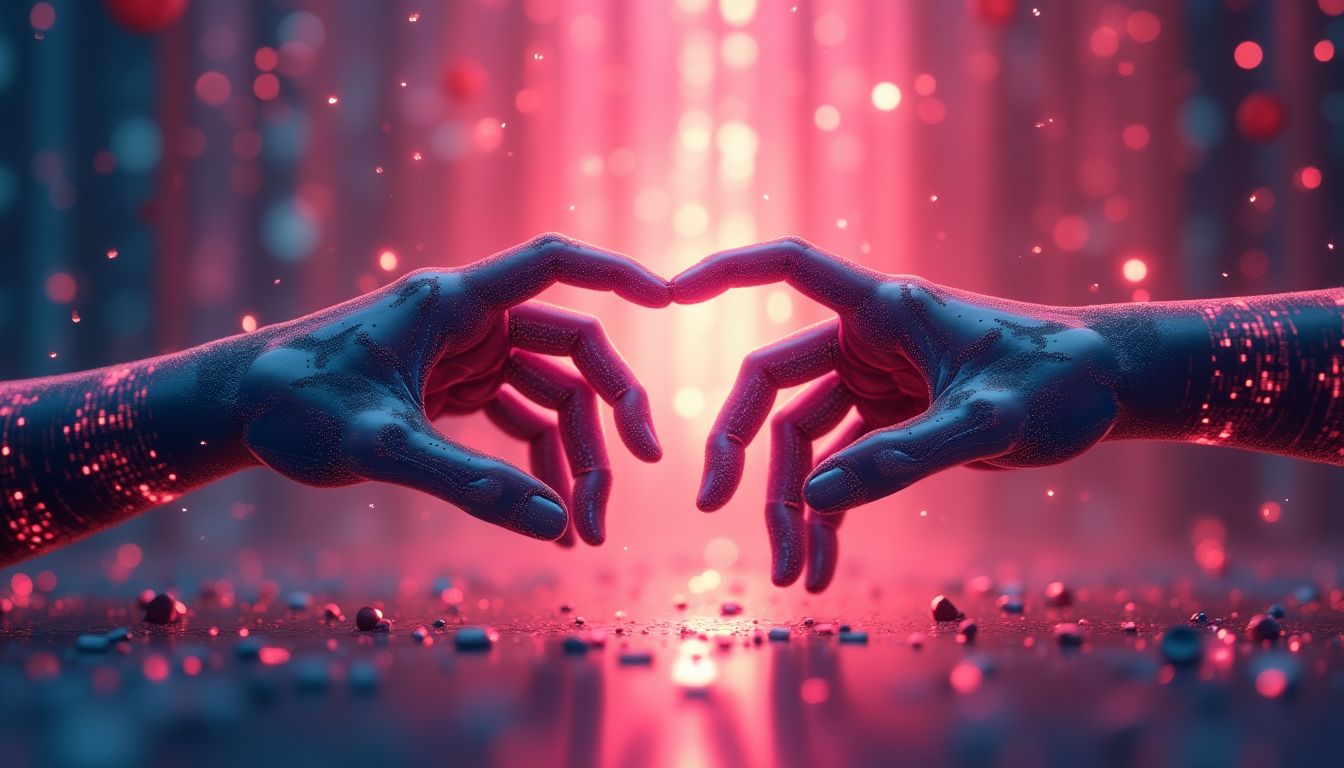

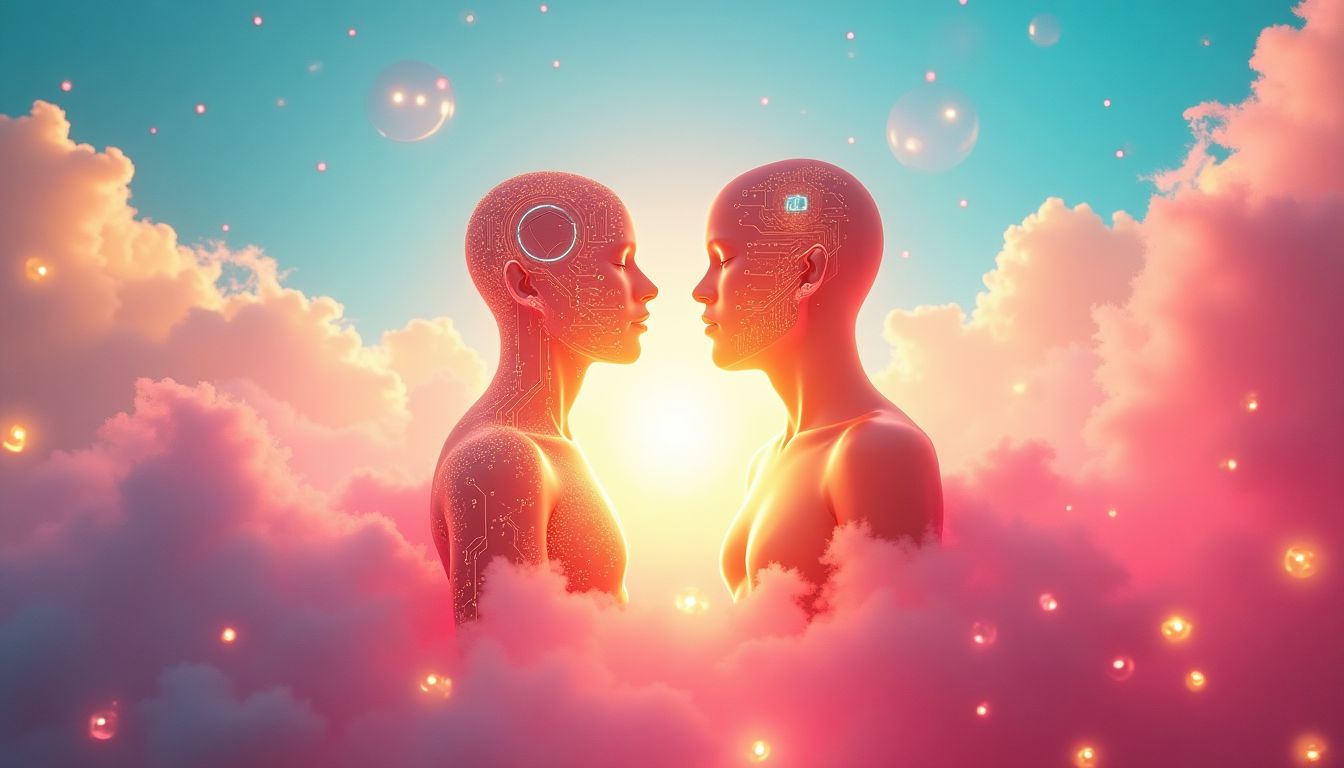
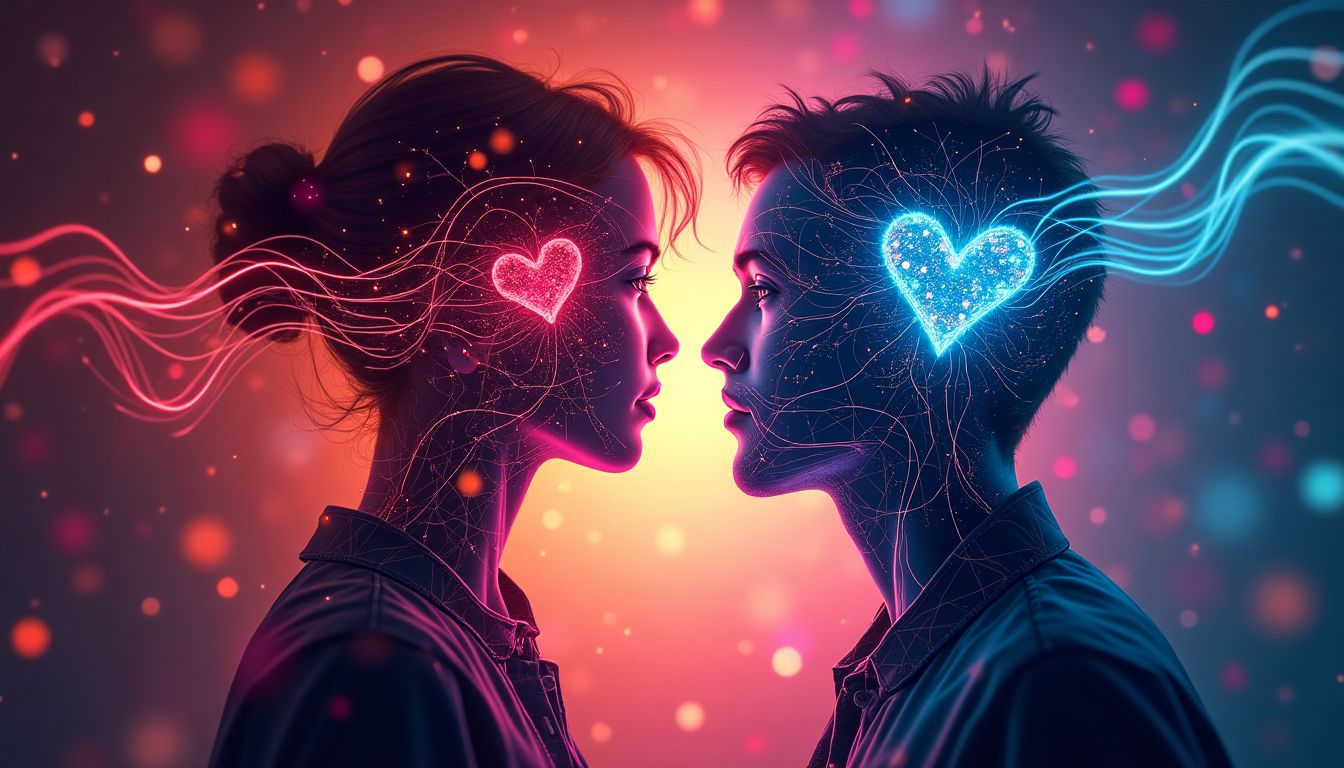




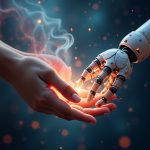


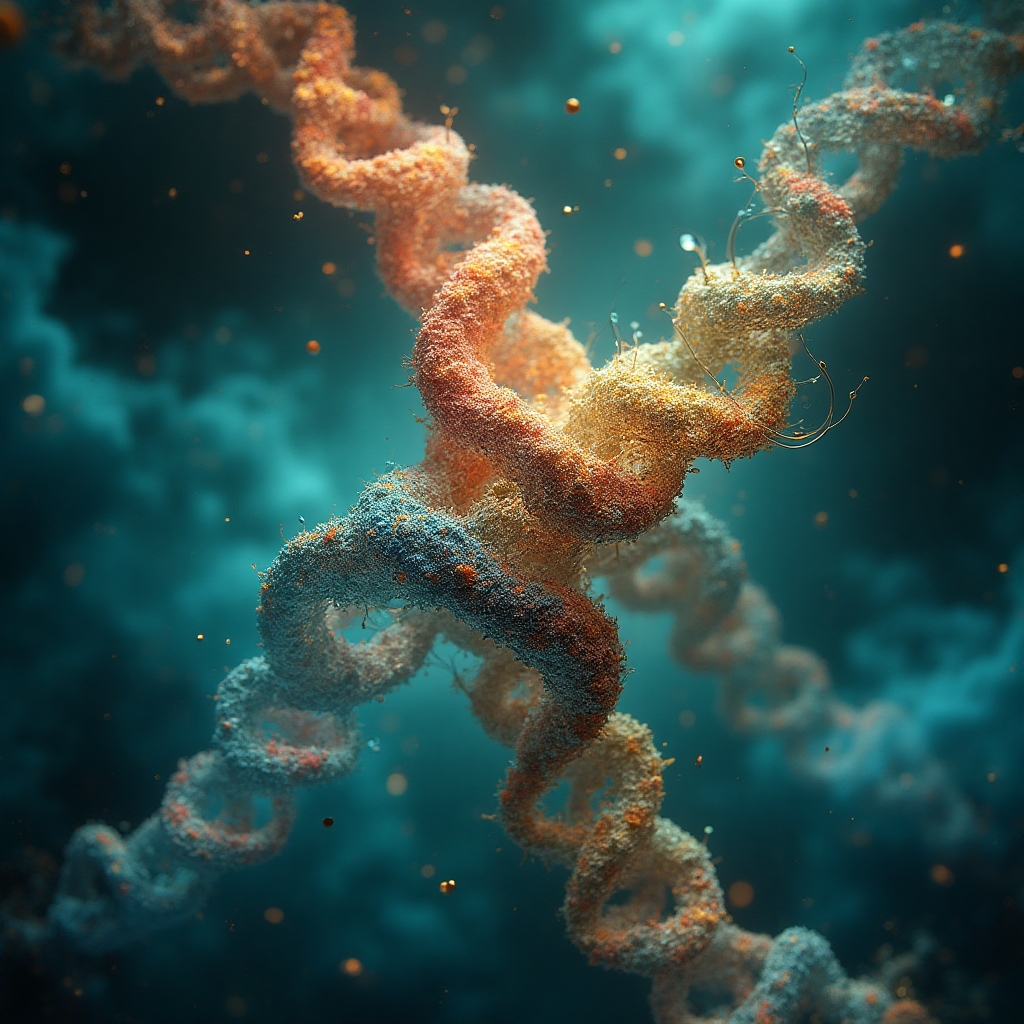
















Post Comment
You must be logged in to post a comment.